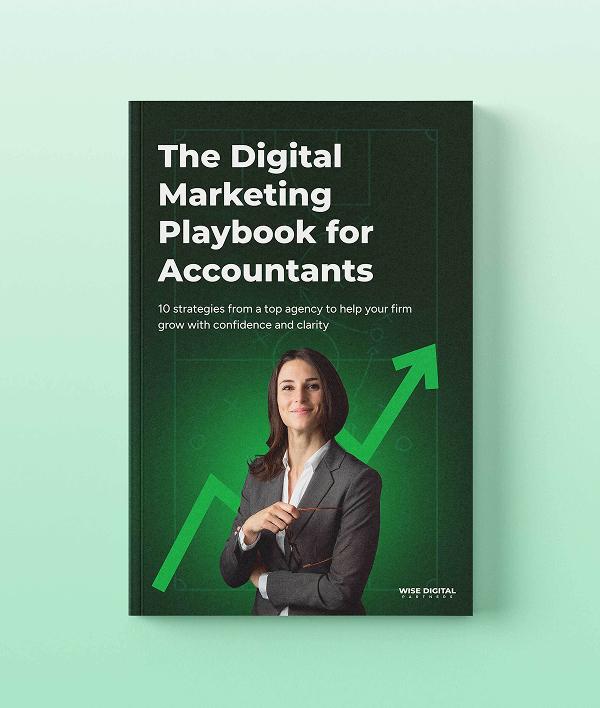It's Time to Get WISE.
A quick, honest call to assess your needs and point you in the right direction—no sales pitch. Best suited for:
- Established businesses with a defined marketing budget
- Businesses prepared to grow and scale
A deep dive with a top expert to uncover gaps and map a smarter path forward.
- Includes a $250 digital audit covering your website, SEO, local presence, and online performance—yours to keep.
- Get smart, actionable ideas you can apply to your business right away.

Enter the email you would like your guide sent to:
Apply Today
Please fill out the information below. Someone on our team will reach out in 3-5 business days to schedule a call if we see a good fit.
Book Patrick Dillon
Thanks for your interest in booking WISE CEO Patrick Dillon on your podcast! Please complete the form below, and a team member will contact you shortly.

Remove Negative Reviews.
Unleashing the Power of SEO & PPC: A Comprehensive Guide to a Winning Digital Marketing Strategy

May 19, 2023
- 8 min read

Discover How Integrating SEO & PPC Can Drive Growth & Increase ROI
Navigating digital marketing can be overwhelming for small business owners, especially with the dynamic and unpredictable shifts in commerce resulting from the pandemic. With so many digital marketing strategies available, deciding where to begin can be a real challenge.
Fortunately, WISE Digital offers a powerful combination of services that can provide a business with a significant boost in visibility, conversions, and sales.
In this post, we’ll dive into the benefits of combining organic SEO and PPC campaigns as part of your overall digital marketing strategy and explore how each strategy works. So if you’re ready, let’s look at how you can supercharge your online marketing efforts in 2023.
Understanding SEO & PPC: Organic Traffic vs. Paid Advertising
What Is SEO?
Organic search engine optimization (SEO) focuses on optimizing a website’s content, architecture, and user experience to naturally attract interested users through search engines (without putting any dollars behind it).
Businesses can improve their organic search rankings and increase visibility by employing effective keyword research, on-page optimization, and off-page tactics such as link building.
The ultimate goal is to rank high on search engine results pages (SERPs) for relevant search queries, which can drive consistent, long-term traffic to your website at no additional cost per click.
What Is PPC?
Pay-per-click (PPC) advertising is a paid search strategy that targets customers actively searching for keywords related to your products or services. Unlike organic SEO, PPC ads are placed at the top or bottom of SERPs, and businesses pay a fee each time their ad is clicked.
PPC allows for enhanced targeting by allowing you to select and test specific keywords, demographics, locations, and devices to catch the eye of your target audience.
By investing in PPC campaigns, businesses can gain immediate exposure and drive traffic to their website faster. Plus, they can test and refine ad copy, keywords, and landing pages in real time.
The Similarities & Differences Between SEO & PPC
SEO and PPC share common goals of boosting a website’s visibility in relevant search engines and providing a positive user experience. By optimizing onsite content and site architecture and targeting high-quality keywords, both strategies aim to improve search rankings and attract the right audience to your website.
These tactics increase brand awareness, drive targeted traffic, and convert visitors into customers. However, the primary difference between organic SEO and PPC lies in the cost structure associated with each type of campaign.
Organic SEO relies on natural search engine algorithms to rank websites based on relevance and quality, and as a result, clicks on organic search results are free.
PPC advertising does not operate on a predetermined fee model, but rather on a bidding model where businesses place bids on keywords and pay the current auction bid price each time their ad is clicked. While PPC can offer faster results and more precise targeting, it requires an ongoing investment to maintain visibility and drive traffic.
9 Ways Merging SEO & PPC Can Supercharge Your Digital Strategy
1. Increase Visibility & Double Your Clicks
By teaming up your SEO and PPC strategies, your business can secure prominent positions in both organic and paid search results. And when your website occupies top spots in both, that effectively doubles your chances of attracting potential customers’ clicks.
This increased visibility leads to more traffic, which ultimately results in higher lead generation and sales opportunities.
2. Maximize Traffic
Another key benefit of combining SEO and PPC is using PPC data to fine-tune your SEO efforts. By analyzing high-performing keywords and ad copy from your PPC campaigns, you can optimize your organic content to target the right audience, leading to more focused and relevant traffic.
Similarly, insights gained from your SEO efforts, such as search queries and user behavior, can be invaluable for launching highly effective PPC campaigns. You ensure a more cohesive approach to reaching your target audience by aligning both strategies.
3. Cut Costs & Gain a Competitive Edge
You can optimize your pay-per-click budget by selecting competitive keywords and concentrating on lower-volume search phrases. This can prevent excessive spending on clicks you could potentially get for free.
When you have a well-managed PPC budget, you can redirect extra resources toward targeting your competitors’ keywords, allowing you to attract more traffic and gain an advantage.
4. Increase Brand Awareness & Elevate Your Online Presence
PPC advertising is a powerful method for exposing your business to a broader audience online. By using incisive targeting strategies, you can get your ads in front of potential customers who might not come across your content through organic search.
As PPC advertising increases brand exposure, you’ll likely see a rise in brand searches and mentions in your analytics reports. This increased brand recognition can positively impact your organic search rankings, as search engines view your website as more authoritative and relevant, leading to higher positions in SERPs.
5. Boost Your Higher Conversion Rates
When you combine SEO and PPC campaigns, you can identify high-converting keywords, ad copy, and landing pages through your PPC efforts.
And by focusing on improving the onsite experience of your site’s visitors, you can increase your organic search rankings and create a seamless experience for users who click through to your website from both organic and paid search results.
6. Improve Quality Score & Ad Rank
Increasing landing page relevance and crafting quality content are strong organic search tactics that can directly impact your PPC performance. By optimizing your website’s content, you can improve the quality score and ad rank in your PPC campaigns.
A higher quality score and ad rank can result in lower Cost Per Click (CPC) and improved ad positions, which means you’ll get more value from your PPC campaigns and enjoy increased traffic and conversions without breaking the bank.
7. Reduce Cost Per Click (CPC)
As your quality score and ad rank improve through effective SEO practices, you’ll see a reduction in your CPC for PPC campaigns. With reduced CPC, you can achieve better ad positions and generate more clicks without increasing your bid amount. This allows you to allocate your ad budget more efficiently, further improving your ROI.
8. Increase Click-Through Rates (CTR)
Creating relevant and high-quality landing pages can attract more clicks and drive higher conversion rates from both organic and paid search results. A well-optimized landing page can make all the difference when it comes to user engagement and lead generation.
As your landing pages become more enticing, you’ll see an increase in your click-through rates, leading to a better ROI for your PPC campaigns.
9. Leverage SEO Insights for More Effective PPC Ads
By analyzing your organic search metrics, you can identify high-converting keywords and phrases that resonate with your target audience. These insights can be invaluable when crafting ad copy for PPC campaigns.
By including these findings in your PPC ad copy decisions, you can improve the relevance of your ads and make them more appealing to potential customers.
Why It’s Important to Fund Your PPC Campaigns Properly
Inadequate funding for PPC campaigns leads to lower click-through rates, reduced visibility, and fewer conversions. These missed opportunities can cause your business to lag behind competitors, making it difficult to catch up in an increasingly competitive online space.
Underfunded PPC campaigns also limit your ability to gather data for organic SEO decision-making. If you don’t make the right investment in your PPC efforts, you’ll miss out on crucial insights that could guide your overall marketing strategy and help you make informed decisions.
When you invest adequately in your PPC campaigns, you’ll gain access to a wealth of information that can help you identify trends, high-converting keywords, and user preferences that can be leveraged for long-term campaign success.
You’ll also benefit from faster data acquisition and insights, allowing you to refine your marketing efforts more efficiently. As a result, you’ll be able to make better decisions for your business and respond quickly to changes in your industry.
You’ll Get Fast Results & Can Keep Making Improvements
One of the most significant advantages of PPC campaigns is their ability to deliver results in a matter of days or weeks, as opposed to the months it might take for an organic SEO campaign to gain traction.
PPC campaigns also allow you to test messaging variations, ad copy, calls to action, and keywords to discover what resonates best with your target audience.
This continuous improvement process helps you refine your PPC ads and provides valuable insights that can be applied to your overall marketing goals.
You Can Use PPC Data Insights to Enhance Organic SEO Strategy
You can use PPC data insights to optimize your organic content for long-term marketing success. This includes using high-performing keywords, adjusting your content structure, and improving the overall user experience on your website.
Using the insights gained from your PPC campaigns, you can ensure that your SEO and PPC efforts work harmoniously, delivering maximum return on investment for your marketing budget.
You Can Use It To Fine-Tune Your SEO Strategy
One of the smartest moves a business owner can make is investing in a strategic PPC campaign right from the start. This offers immediate access to valuable data and insights that can help refine your overall SEO strategy.
Taking this data-informed and forward-thinking approach accelerates your growth and sets the stage for long-term success. Combining SEO and PPC creates a dynamic, results-driven digital marketing strategy that packs a powerful one-two punch!
So, if you’re looking to optimize your online presence, don’t wait — make the right investment in your PPC campaign and fine-tune your SEO strategy. Book a call with us today to get started!
With this powerful fusion of tactics, you’ll be well on your way to achieving your growth goals and reaching new heights of success.
Share
Subscribe to WISE Insights
Stay ahead of the digital marketing curve and never miss a lucrative trend or insightful tidbit – subscribe to our WISE blog!
Keep Reading
Build. Grow. Soar.
Get WISE about digital marketing with advanced services, industry experts, and cutting-edge tools designed for long-term, sustainable growth.



